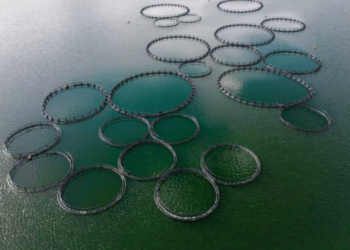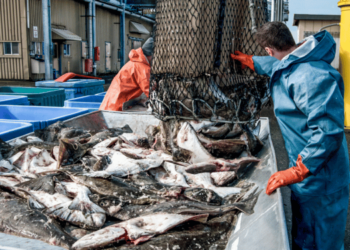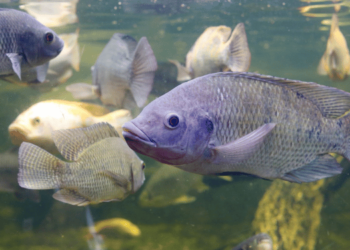New ISSF report on the state of tuna available – A wind of change is blowing over the global tuna fishery, thelatest report by the International Seafood Sustainability Foundation (ISSF) published last March shows. This new study looks not only at tuna, but also at the broader environmental impacts of fishing practices on other species and ecosystems.
Tuna stock
Eighty-six per cent of the world’s tuna catch comes from stocks in ‘healthy abundance’, marking a one per cent increase from the previous report, that of 2023. The decline in overfished stocks is also notable, now representing 10% of the total, down from 11% in the previous report. The statistics remain stable for intermediate level stocks, which make up 4% of the total.
Despite the improvements, some areas remain critical. Mediterranean albacore, Indian Ocean bigeye and Indian Ocean yellowfin stocks are considered overfished and subject to overfishing. Pacific bluefin tuna is also overfished, highlighting the need for more sustainable management.
Key updates in stock management include the encouragement of FAD (Fish Aggregating Devices) recovery programmes by the Western and Central Pacific Fisheries Commission (WCPFC), and the adoption of a harvest control rule for North Pacific albacore tuna, in line with what the Inter-American Tropical Tuna Commission (IATTC) did in 2023.
New environmental report
Complementing the stock status analyses, a separate report entitled ‘Tuna Fisheries’ Impacts on Non-Tuna Species and Other Environmental Aspects: 2024 Summary’ was published. This document focuses on the bycatch and other environmental impacts of various tuna fishing techniques, promising to become an annual publication.
The report highlights the importance of spawning stock biomass, with 61% of stocks in good condition, and fishing mortality, with 78% of stocks not overfished. In terms of gear, 66% of catches are taken with purse seines, followed by longlines and lines. Furthermore, the catch of the main commercial tuna reached 5.2 million tonnes in 2022, an increase of 2% compared to 2021.
The ISSF not only provides crucial information but is also committed to responsible and sustainable fishing. The report not only provides data but also promotes the adoption of practices that respect the balance of marine ecosystems. Collaboration between fisheries management organisations and initiatives such as ISSF is key to ensuring a sustainable future for tuna fishing and the health of our planet’s oceans.
Through the continuous updating and accessibility of its data, the ISSF demonstrates its commitment to a tuna industry that not only meets market demands but also keeps a watchful eye on environmental sustainability, a balance that is essential to safeguarding marine resources for future generations.
The Status of the World Fisheries for Tuna report is available here.
New ISSF report on the status of tuna available









